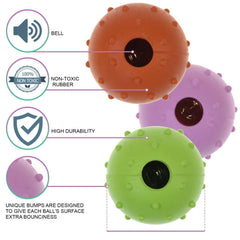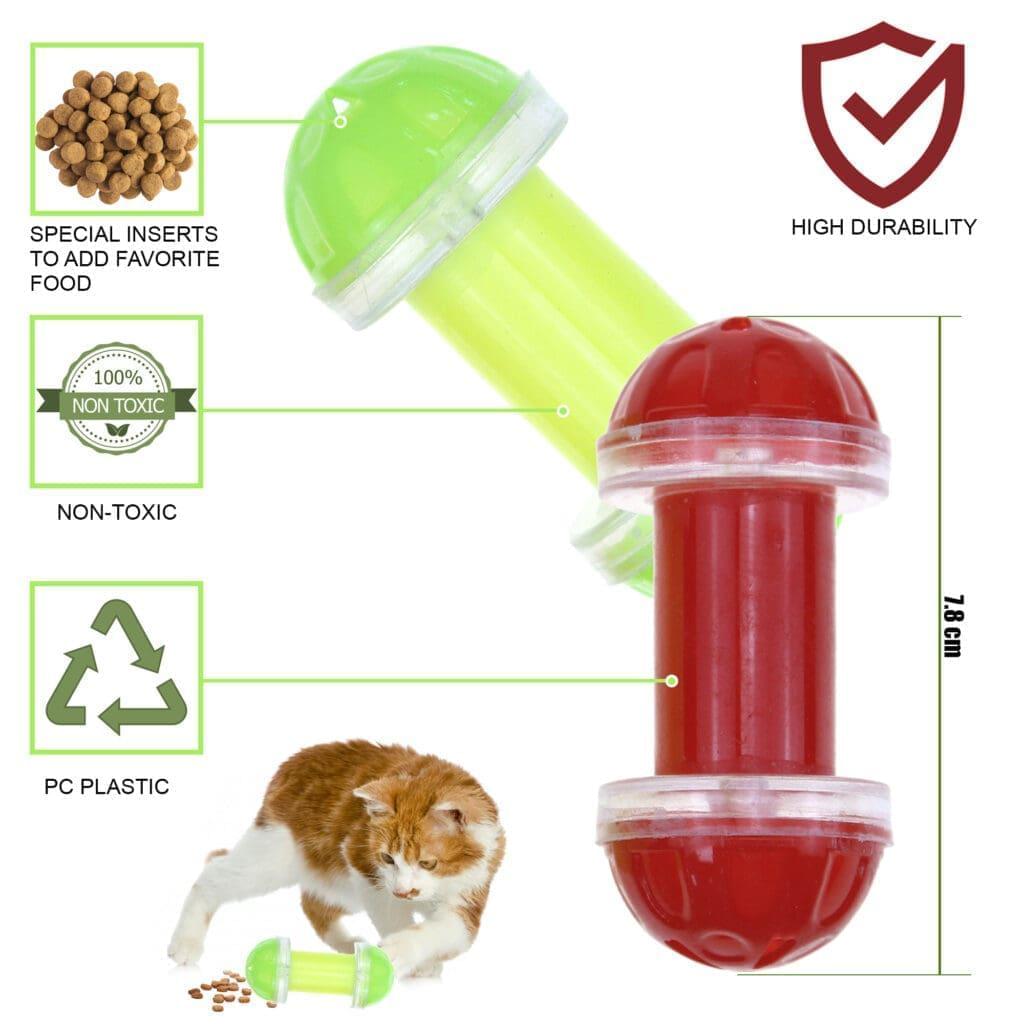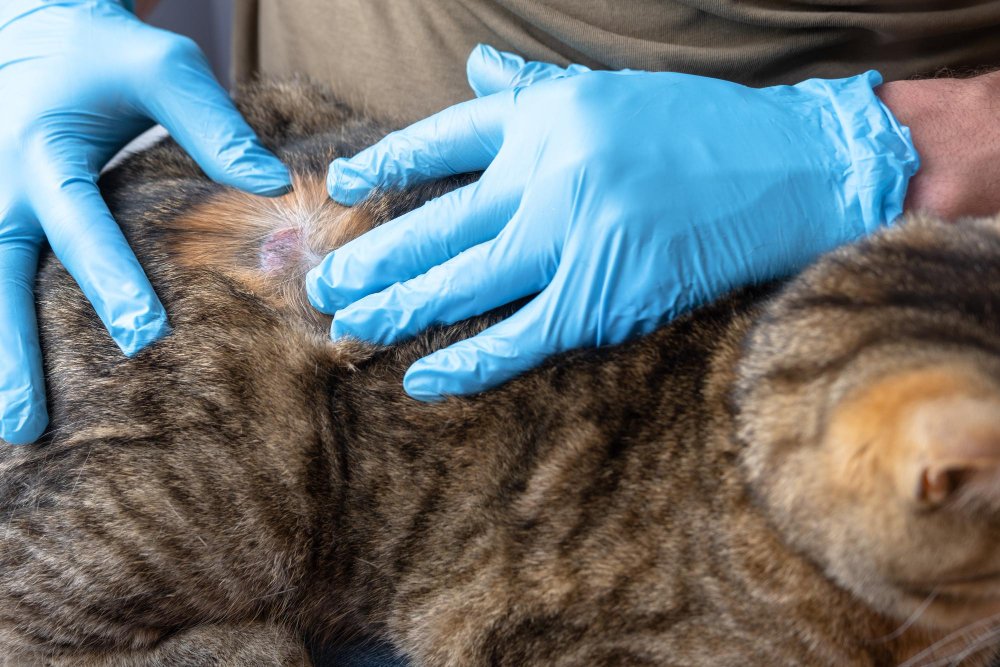
Fungal infection in cats can be a severe nuisance to cat parents. Watching your cat suffer from a fungal infection can be difficult, as it makes them extremely uncomfortable and uneasy.
But don't worry. Rexipets is here today to talk about fungal infection in cats, whether you have dealt with this problem before or are a new cat owner looking for answers.
In this article, we'll talk about fungal infections in cats. We'll keep it simple, looking at why cats get these infections and what we can do to treat them. We'll also talk about how we can spot the signs early and do things to keep our cats safe.
So, put your feet up, sit back, and let's learn together how to take care of our cats and keep them healthy!
What is a Fungal Infection in Cats?
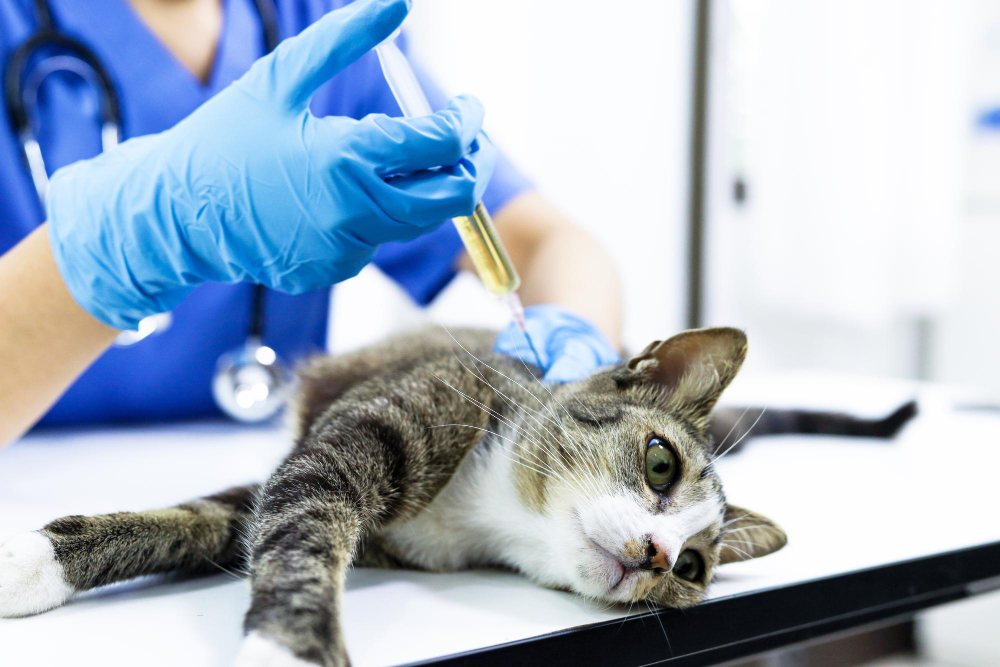
Fungi, which cause infections in cats, usually live in the soil. They can enter a cat's body through inhalation, ingestion, or open cuts and scrapes on the cat's body.
Once inside, these parasitic organisms thrive, producing spores that lead to either localized infections or infections spreading throughout the cat's body.
Skin infections, like ringworm, are the most common fungal issues veterinarians observe in cats.
While certain fungi can make healthy cats sick, most generalized fungal infections usually occur in unwell cats with weakened or compromised immune systems and are very young or sometimes quite old.
These infections may be contagious among cats or between cats and people who spend time with them, but this depends on the specific fungus involved. You might also notice Pyoderma in Cats which is also a fungal infection.
Different Types of Fungal Infections in Cats
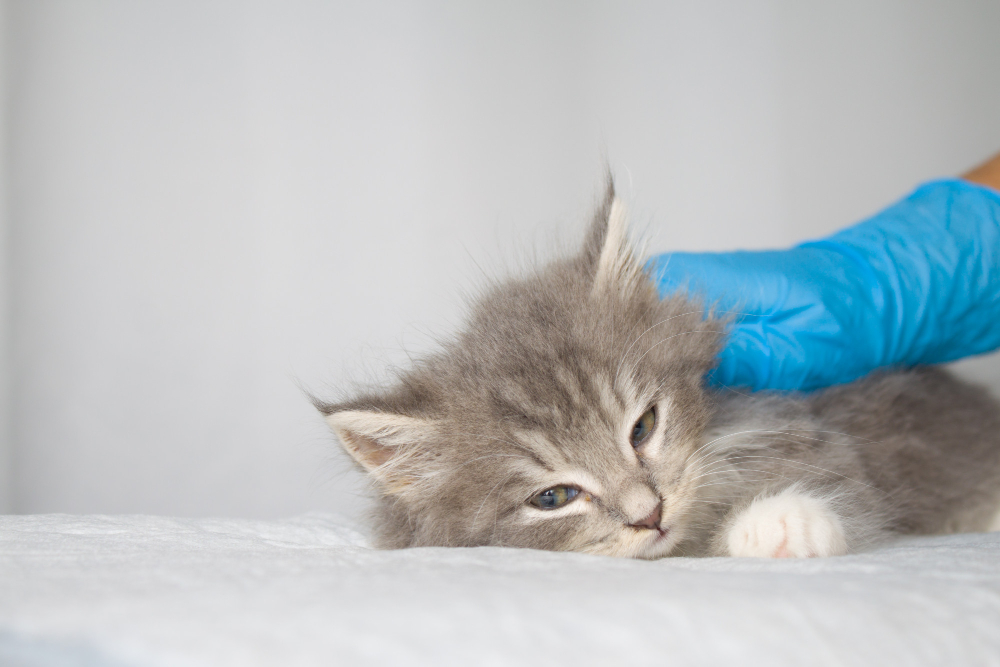
Various fungi in the environment can threaten your cat's health. Still, certain types of cat fungal infections are more common than others.
Here are some of the most common fungal infections in cats:
- Aspergillosis
- Candidiasis
- Cryptococcosis
- Coccidioidomycosis
- Histoplasmosis
- Blastomycosis
- Mycetomas
- Rhinosporidiosis
- Sporotrichosis
- Phaeohyphomycosis
Most fungal infections in cats may either exist in specific areas, such as the nose, nasal passages, lungs, or skin, or they can spread throughout the cat's body, causing more generalized symptoms.
Causes of fungal infection in cats
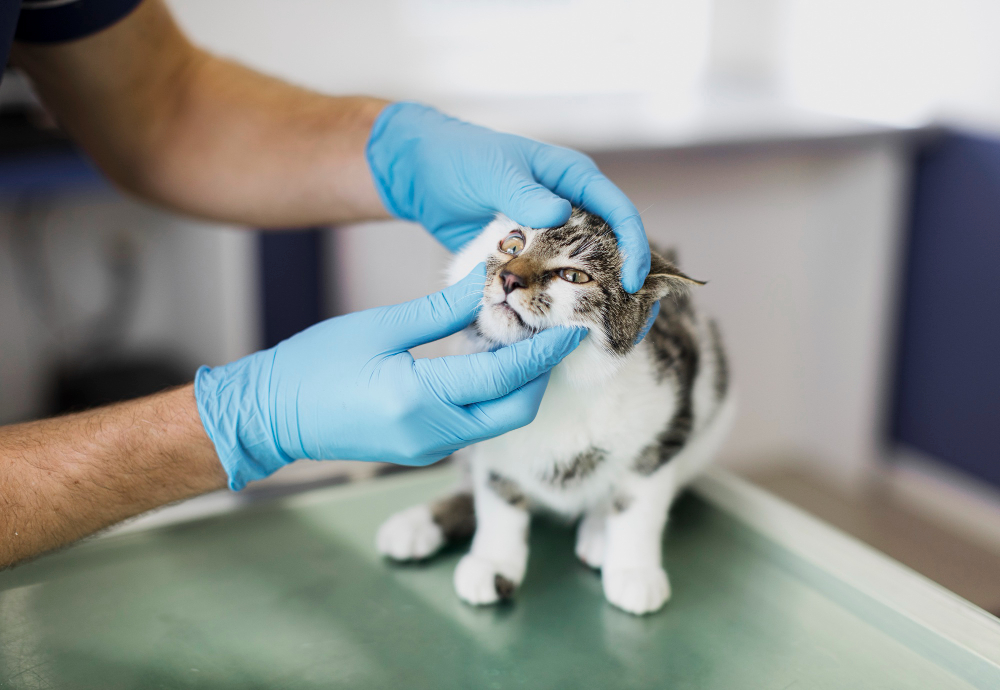
Fungus that can make cats sick is found in different places outside. Cats can get in contact with it in different ways.
Here are some common reasons cats might get fungal infections:
-
Being around animals that already have the fungus.
- Cats with sicknesses that weaken their immune system are more likely to get fungal infections.
-
The fungus can get in if a cat has a cut or wound on its skin.
-
Just being in the soil where the fungus lives can be a cause.
-
Breathing in fungus or being near it in the air.
-
Getting in touch with fungus in the poop of sick animals.
Knowing these reasons helps keep our cats safe from getting sick with fungi.
Signs of Fungal Infection in Cats
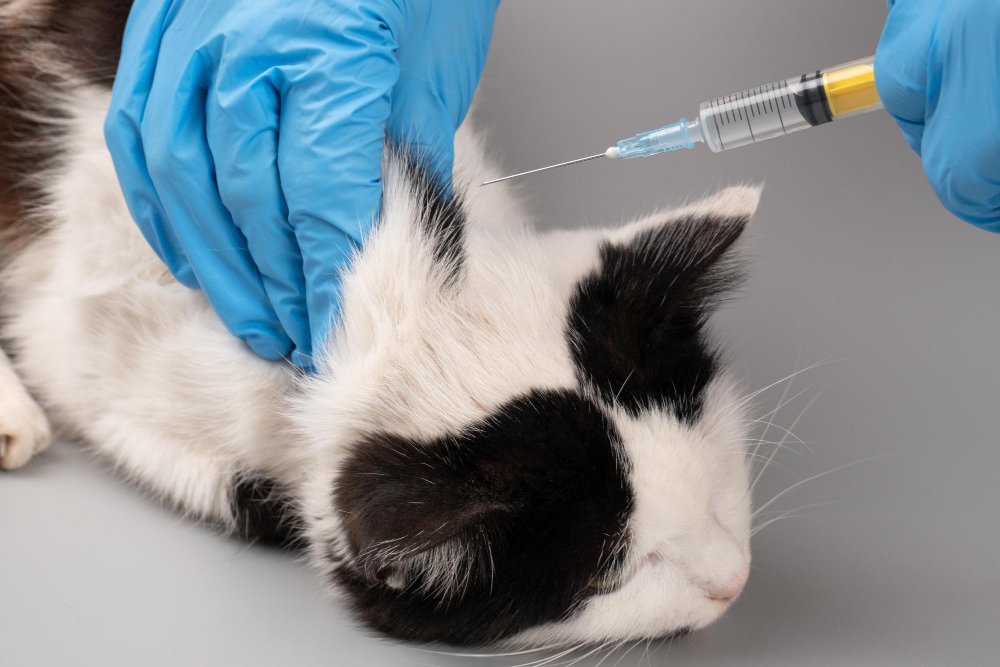
If your cat is dealing with a fungal infection, their symptoms will vary based on the type of fungi causing the infection.
Here are some of the most common signs you can see with cat fungal infections:
-
Appetite and Weight Changes
If your cat has a fungal infection, it might not feel like eating much, which could lead to it losing weight.
Infected cats might be lethargic, lack energy, or be unusually inactive. If you notice these signs, taking your cat to the vet for help is important.
-
Fever and Generalized Infections
High fever and other secondary infections may occur, affecting various parts of your cat's body.
-
Eye and Skin Issues
Fungal infections can lead to eye infections and skin lesions in affected cats.
-
Neurological Symptoms
Some cats may even show severe neurological symptoms due to fungal infections. These can include seizures, paralysis, or circling.
-
Respiratory Distress
Lung infections and persistent coughing may occur, particularly with certain fungal infections. Breathing difficulties may also arise, affecting the cat's overall respiratory function.
-
Gastrointestinal Problems
Fungal infections can cause bladder and gastrointestinal tract issues, leading to symptoms like diarrhea.
-
Nasal Discharge
Symptoms may include bloody discharge from the nose and swelling under the bridge of the nose.
-
Vision Impairment
Some fungal infections can result in blindness or other vision-related problems in your cat.
-
Anemia
Fungal infections may contribute to anemia, affecting the cat's blood and leading to several issues.
These symptoms underscore the importance of promptly seeking veterinary attention if you observe any unusual signs in your cat's behavior or health. The specific symptoms experienced will provide valuable clues for the veterinarian to identify the type of fungal infection and determine an appropriate course of treatment.
Diagnosis of a Fungal Infection in Cats
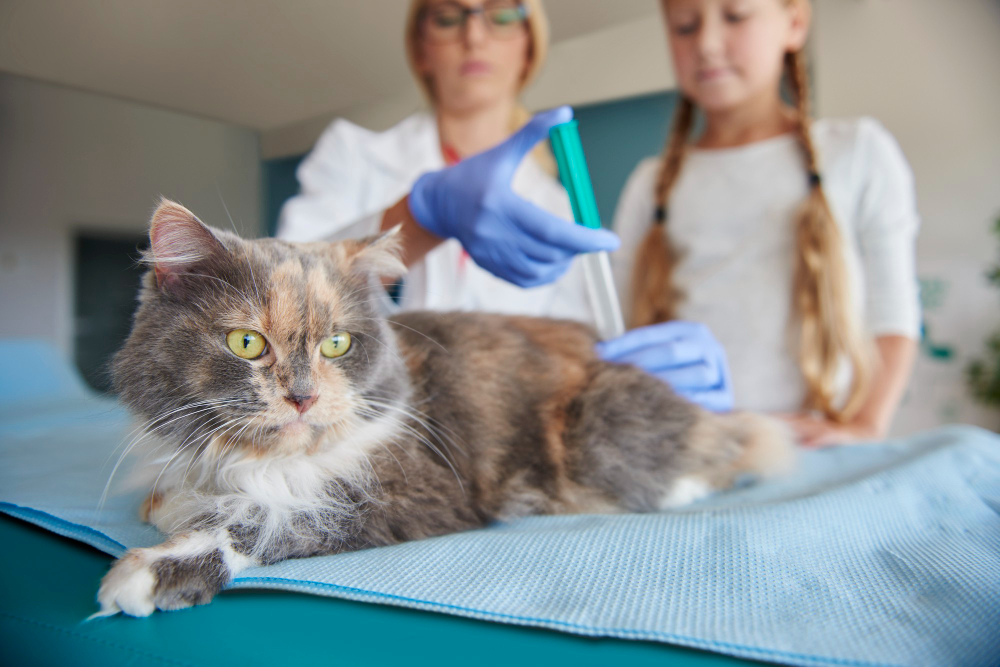
Diagnosing certain rare cats fungal infections in cats can be tricky. The vet will start by asking you questions about your cat's health, like when the symptoms started and if your cat has any underlying health conditions. This analysis treating fungal infections is pretty common.
Then, they'll check your cat's medical history, perform a urinalysis, and take blood for tests like a complete blood count (CBC), and a chemical blood profile.
Sometimes, the vet might need to do more and take a small piece of tissue from your cat. They usually do this during surgery when the cat is asleep. The tissue sample goes to a lab to figure out what's going on.
How to Treat Fungal Infections in Cats?
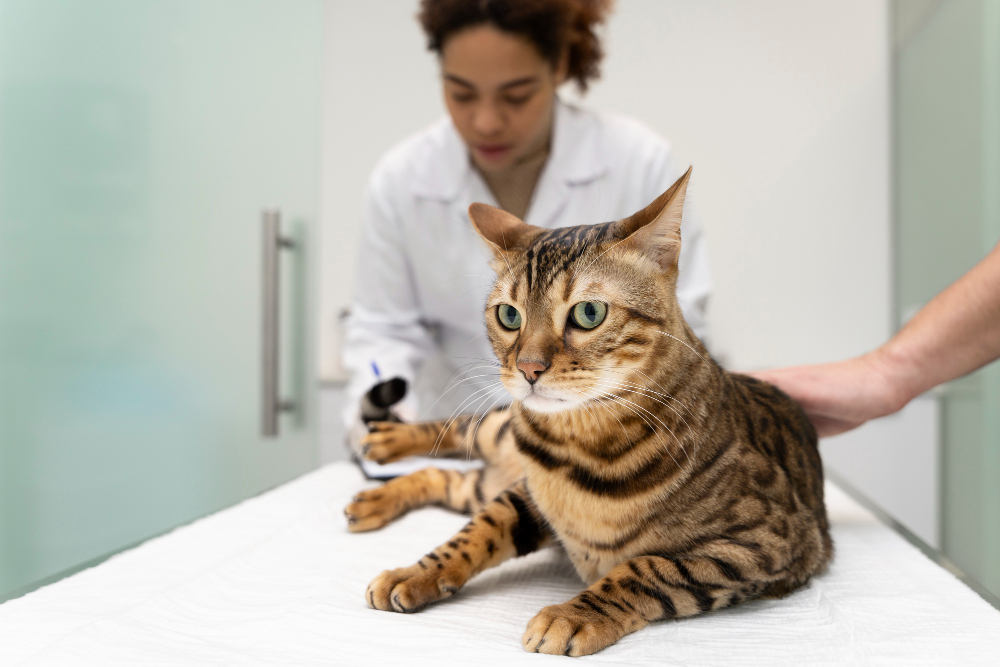
The treatment to help your cat get better from a fungal infection depends on what's going on. The vet might give your cat prescription medication in the form of pills or creams.
If your cat has a fungal skin infection, the vet may recommend you use topical ointments or special shampoos. If there are other infections, they might need more medicine or fluids through a needle.
In some cases, if the infection can spread to people, your cat might have to stay at the veterinary hospital for a bit to keep your family safe.
If you're taking care of your cat at home, the vet will tell you what to do, like wearing gloves and a mask, washing your cat's things, and being careful with the litter box. Just follow the vet's advice to help your furry friend feel better.
How Do Cats With Fungal Infections Recover?

The kind of fungal infection your cat has and its age and health will decide your cat's prognosis. Some infections can be treated with medicine, but others might have lasting effects, like severe neurological symptoms, especially in cases of North American Blastomycosis.
After treating a fungal infection, it might take weeks to see your cat feeling better. Going to follow-up vet visits is highly crucial for checking if your cat is getting better or if adjustments to the treatment are needed.
Your vet will keep an eye on your cat for any signs of the infection coming back and will make necessary changes to the medicine, if required.
Final Words
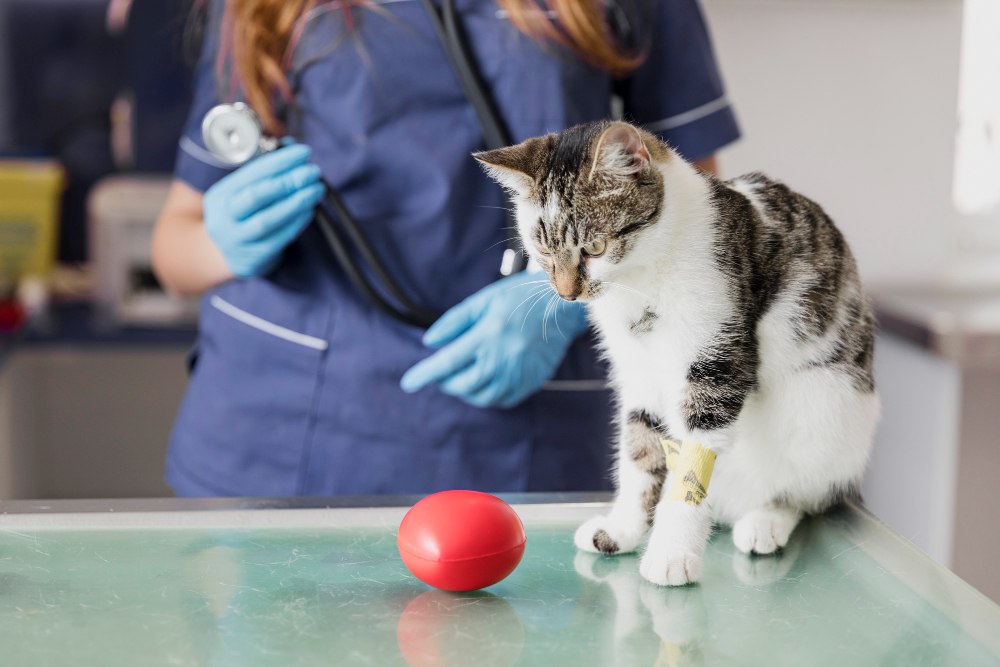
To sum up, knowing why cats might get sick from fungi and how to help them is really important. Fungus is everywhere, and our cats can catch it in different ways, like being close to sick animals, having cuts on their skin, or just being in places with fungus.
If our cats show signs of a serious fungal disease or infection, like not eating well or having skin problems, we should take them to the vet. Vets can give them medicine to help them get better. Sometimes, the cat might need to stay at the vet's for a bit for intense care.
It's not just about treating the sickness but also stopping it from spreading. So, following what the vet says, like cleaning our cat's things and being careful with them, helps a lot. By being aware and taking good care of our cats, we make sure they stay happy and healthy.
Being cat parents, it's our job to keep our furry friends safe and healthy from fungal skin infections.
FAQs
How do cats get fungal infections?
Fungal infections can happen if you breathe it in fungus, swallow it, or if it gets into your skin, like through a cut. Most infections mainly come from the soil.
How can I recognize if my cat has a fungal infection?
Look out for signs like poor appetite, weight loss, skin lesions, respiratory issues, and behavioral changes. If you notice these symptoms, it's crucial to consult a veterinarian.
Can I prevent infections in my cat?
While it's challenging to eliminate all risks, maintaining a clean environment, avoiding contact with an infected animal, and following vet recommendations for hygiene can help reduce the likelihood of fungal infections in cats.
Can I use over-the-counter antifungal creams on my cat's skin lesions?
It's essential to consult your vet before using any medications. Over-the-counter products may not be suitable, and your vet can recommend safe and effective treatments tailored to your cat's specific condition.
How do I clean and disinfect my cat's belongings to prevent spreading?
Regularly clean and disinfect your cat's bedding, food bowls, toys, and litter box. Make sure you use a pet-safe disinfectant soap. Follow vet recommendations for cleaning products to ensure they are safe for your cat.
